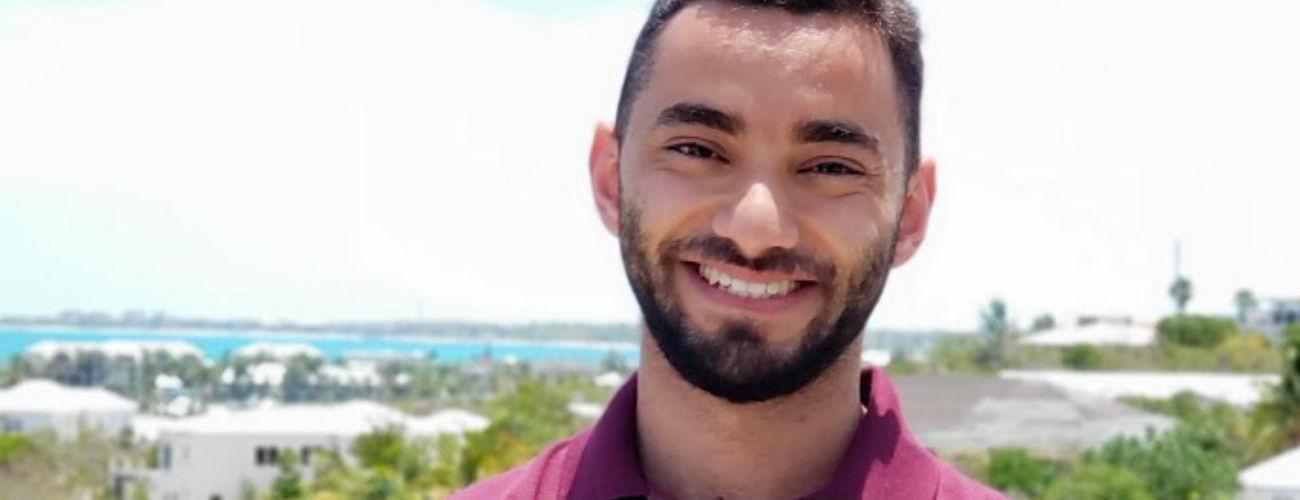
01 Jul Muath Ibaid – Leading an NC
Can you please introduce yourself?
My name is Muath Ibaid, I’m originally from Palestine and I attended UWC Maastricht between 2011 – 2013. After leaving UWC Maastricht I went to the U.S. to start my undergraduate studies at Macalester College, Minnesota. I graduated from Macalester College in 2017 with two majors: Economics and Applied Mathematics. I then moved to Washington DC to work in consulting at Ernst & Young (EY) where I was an analyst in the public policy modeling team.
Currently, I’m doing a Master in Public Policy (MPP) degree at Harvard University. I’m particularly interested in learning how youth can be involved in designing and delivering effective government policy.
If you think back to your time at UWC Maastricht, what does come back to you?
When I think back about UWC Maastricht, the first thing that comes to mind is biking through the city to get from the old boarding house to campus. I remember doing this bike ride everyday with my friends. Sometimes we’d be continuing conversations that we had started at the breakfast table and other times we’d be biking fast to make sure we weren’t late for class.
One of the things I miss the most about UWC Maastricht is learning about people’s cultures and backgrounds. This often happened through casual conversations at dinner or in the hallways of the boarding house (especially at check-in time!). I also learned a lot from culture weeks where people organized beautiful activities and cooked excellent food!
How did you stay in touch with the UWC movement after graduation in 2013?
Graduating from UWC Maastricht was not the end of my journey with the UWC movement. I knew that what I had learned during my UWC experience would shape who I am afterwards. Starting at my undergraduate college, I was eager to grow and learn more through cultural and social activities. Utilizing the organization skills that I learned at UWC, I was able to lead student organizations and organize campus wide activities. The goal was always to complement my academic education with learning from diversity and human interactions, something that UWC planted in me.
My desire to spread the message of UWC and support the movement inspired me to volunteer for the UWC Palestine National Committee (NC). I wanted ambitious Palestinian youth to go through a similar life-changing experience to the one I went through. At the beginning, I volunteered to support the NC with the selection process through reading applications, helping with interviews, and spreading the word about UWC in Palestine.
You are currently leading the Palestine NC, what is it like?
After 3 years of volunteering with the UWC Palestine NC, I was elected to become the co-chair. As a national committee run fully by volunteers, I realize how important it is to dedicate time and effort to make sure that Palestine would always send students to join the UWC schools. It was difficult at times to balance my studies or my busy work schedule with the Palestine NC commitments. However, I viewed my NC work as one way I could give back to the experience that made me the person I am today. I realized that if it wasn’t for UWC, I wouldn’t have been here right now, and this was my way to contribute back.
We now have an amazing team of volunteers running the NC. Given the unique circumstances of Palestine, most of us are outside of the country pursuing education or working. We go through busy times and more relaxed times during the year. I think my colleagues would all agree that the most rewarding moment every year is when we call/email students to inform them that they have been selected. Hearing their happy reactions makes all the hard work worth it.
I enjoy leading the Palestine NC because it allows me to remain engaged with the movement, work with very dedicated colleagues, and meet very talented young Palestinians. As a co-chair, my responsibilities range from communicating with the UWC IO and schools to making sure that we stick to our annual selection and promotion timelines. Since the NC is run by volunteers, it is common that some of us would get busy and others would take on more tasks. This works fine because all the NC members are dedicated to the mission and are willing to go above and beyond to ensure the continuity and success of UWC Palestine.
What is the most challenging about selecting new generations of students? How do the current generations differ from your times?
One of the most challenging things in selecting new generations of students is the fact that most of the NC members are abroad. Traveling to Palestine is not easy and this makes it a little more complicated to meet our candidates in person and spread the word effectively on the ground.
Another challenging part is to assess candidates while recognizing the difference between our generation and the younger ones. Education style, activities, and events are changing very quickly and we must keep up to make sure we are being fair in our assessment. For example, we are noticing that more and more candidates are talking about computer engineering or artificial intelligence as their interests. We have been modifying our interview questions and activities to make sure we engage with them on these specific areas.
Why should other UWCM alumni consider supporting their NC?
I think UWC alumni should think of volunteering with the NCs as one way of giving back to the movement. We all had different experiences at UWC. I realize that some experiences were different than others, but I think we all can agree that we grew a lot during our UWC years, and we made some amazing friendships. Alumni can support in different capacities whether through working with the NC, helping with annual events, donating financially, or simply spreading the word when needed.


